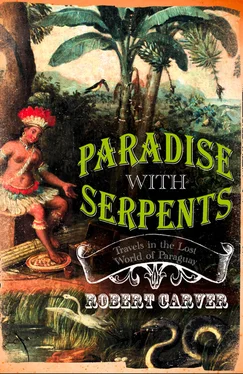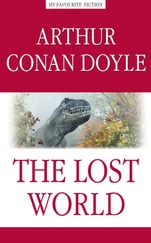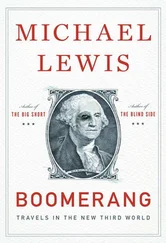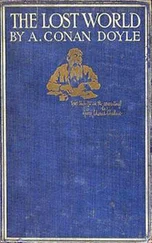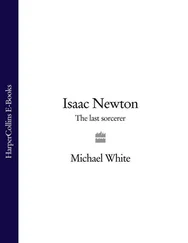The centre of old Asunción did have a certain faded elegance, reminiscent, especially after dark, of post-Baron Haussmann Paris, with tropical excrescences such as vultures perched on the telegraph wires, and impassive Indian women smoking coarse cheroots, squatting on the doorsteps. The park sported French 19th-century style wooden benches, white wooden slats held together by elaborate wrought iron, these boat-like contrivances designed for amatory ooh-la-la, even, perhaps, for complete copulatory performance, their arched backs swooning towards the grass. The palms rustled in the faint breeze, rats of impressive size scampering up and down the trunks with complete lack of pudeur , and groups of Indians in costume hunkered down for the night amidst the shrubbery, grouped around small, glowing fires on which they brewed their evening potations. By day, I later discovered, these impassive indigenos strolled about the town in loin cloths, amid the BMWs and Mercedes, proffering handicrafts, bows and arrows, and beadware, with very little evident enthusiasm or hope of a sale. These, I was told, were the Makká people, who had come in from the Chaco, the Paraguayan Outback that lay just across the river.
The old Post Office was the finest 19th-century stucco building I found, with a charming interior patio full of carefully tended tropical plants, and an elegant stone staircase up to the flat roof, where there was a café and an unrivalled view down across the square to the river beyond. Flags, of the Paraguayan variety, of all sizes, flapped energetically from many buildings in the strong evening wind that rose off the river, bringing the stink of the poor up into the centre of town. It was evident already that there were many poor, and they surrounded the city proper in their slums. A few of them slunk about furtively in the shadows, watched intently by armed police who carried shotguns, machine-guns and assault rifles, and wore six-shooters in black special-forces style low-slung holsters. I had been greeted jovially by a police officer as I walked about the square below the Post Office. He smiled elaborately and said that, with my permission, as I was evidently a foreigner, I would not mind if he gave me a few words of friendly advice. Under no circumstances was I to wander down the steps and into the favela – he used the Brazilian word for a shanty town – below us. The centre of Asunción was safe, he said, relatively safe even at night. The favela was not. I would be attacked, robbed and perhaps killed within minutes of going down there. It would be best if whenever I wandered around I kept an eye out for police and soldiers. If I could see police and soldiers I was probably all right – no one would attack me. If I couldn’t, then I was not safe. There was a great deal of crime at the moment, he told me, due to the unsettled conditions in the country. Not only foreigners were at risk, ordinary Paraguayans were attacked every day, even here in Asunción. I asked if everyone had identity papers, even the poorest of the poor, even in the favela . Everyone had papers, he said, absolutely everyone. Not to have papers was a criminal offence in itself. He wished me a good evening, smiled again and then strolled away. His warning and the slight chill in the air had suggested I should now retire for the night. I made my way back to the hotel and shuttered the windows tight. There were many mosquitoes on the wall and I spent half an hour killing them before turning in. I couldn’t really tell if these were the fast, intelligent variety or the slow, stupid ones. I rigged up my mosquito net, purchased in London, and crept under it. The bed was hard and uncomfortable. My room cost US$5 a night. I determined to move upmarket and out of the centre of town after the census was over.
Four
Du Côté de Chez Madame Lynch
Gabriella d’Estigarribia sat in the shade under a palm tree by the swimming pool and sipped her grapefruit juice delicately. She had a wide-brimmed straw hat on, her face in deep shadow, yet already the sun had caught the pale, fair skin of her face.
‘Foreigners come to Paraguay, find they can do nothing with the people, become angry, then give up, eventually, and go away again in disgust,’ she said evenly, not looking at me, but rather at the hummingbird which hovered like a tiny helicopter over the swimming pool.
‘Why is it so hard to get things done, for foreigners?’ I asked.
‘Not just for foreigners, for everyone. Some say it is the mentality of the Guarani people, who used to be called “Indians” before they were converted to Catholicism by the Spanish. Then, by a sort of unexplained miracle they ceased to be Indians and became Paraguayans. People say the Guarani live entirely in the present – the past is forgotten, the future unimagined. Remembering things and making plans for the future are both of no interest to them. Promises are made, events planned, but nothing happens – inertia sets in. From the first the Europeans had to use authoritarian means – force, coercion – to get anything done. The Jesuits used to whip their converts on the famous, oh-so-civilized, we are told, Reductions, as well as the ordinary secular colonial overseers on the plantation.’
‘That was a long time ago, surely. What about today, in the new post-Stroessner democracy?’
‘His Colorado Party is still in power. He was displaced by an internal coup because he had grown old and flabby. He was arrested at his mistress’s house. She was called Nata Legal – nata being “cream” in Spanish – that makes her Legal Cream in English, no? What better name for a mistress. He tried to call out the tanks but the only man with the keys for the ignition had gone off to the Chaco for the weekend – so no tanks. There was an artillery duel in Asunción – you can still see the pockmarks in the buildings from the shells – then he was gone, bundled off to Brazil where his stolen millions had been sent ahead. Now we have mounting chaos because no one is frightened any more. Corruption is universal. Everyone takes bribes if they can. Before, under Stroessner, you paid your 10% in bribes to the Party and then you were left alone. Under this so-called democracy you are constantly being made to pay up by everyone, and still nothing is done, because no one is forced to do it any more. You must have noticed the city is falling apart from neglect.’
In her thirties, married and with two small children, Gabriella came from an old Paraguayan family which had been in the country, on and off, since the Spanish Conquest. Her ancestors had come from the Basque provinces of Spain, as had so many of the other conquistadors. Like many of her Paraguyan ancestors, she had spent years abroad in exile, in her case in Miami, in Italy and in England, during the decades of political repression. We were sitting outside in the lush tropical garden of Madame Lynch’s tropical estancia . Once this had been a cattle ranch in open country, belonging to the mistress of the dictator López, now it was a hotel, surrounded by a well-heeled suburb of Asunción, an hour’s walk from the centre of town. You could get a bus or taxi down Avenida España, which made the journey much shorter, but the spate of robberies on public transport meant that many, including myself, preferred to walk. The Avenida España had well-armed police at frequent intervals, as well as motorized patrols during daylight hours, and most of the shops and institutions on either side had highly visible private armed guards sitting outside in plastic chairs with pump-action shotguns or automatic rifles across their knees. At each petrol station there was an army patrol permanently stationed, two or three uniformed men with automatic rifles. This was the route to the airport from the centre of town. If there was a coup d’état or a revolution, this was the route the outgoing government would flee along: clearly they wanted to make sure there would be enough petrol available to get them to their planes. It was the petrol supply for Stroessner’s tanks that had been under lock and key, I later learnt, when the crunch had come, not the ignition keys. Clearly, this government didn’t intend to make the same mistake. Stroessner still gave maudlin interviews to journalists from time to time from his hideout in Brazil, where he bemoaned the fact that he was a much misundertood former dictator – but then they all say that, those that survive. An avowed fan of Adolf Hitler, his secret police, known as the Technical Service, were among the most feared in South America. Cutting up political opponents with chainsaws to a musical accompaniment with traditional Paraguayan harp music was a popular finale, the whole ghastly symphony played down the telephone for favoured clients. Like his local hero the Argentine dictator Juan Perón, Stroessner had a taste for young girls – very young, pre-pubescent. When a daring journalist had once asked Perón if it was true that he had a 13-year-old mistress, he replied, ‘So what? I’m not superstitious.’ His reputation among Argentines had soared after this was revealed, the ultra-young mistress being seen as a sign or both power and virility. The 13-year-old in question used to parade around Perón’s apartment dressed in the dead Eva’s clothes, to the slothful admiration of her ageing beau. Stroessner was reputed to favour the 8–10 age group. His talent scouts waylaid them outside school, from where they were taken to discreet villas to be enjoyed by the Father of his People. If they performed nicely they and their parents would be sent on a free holiday to Disneyland in Florida, the nearest Paraguayans can get to Heaven without actually dying first. Stroessner, the half-Bavarian, half-Indian dictator had sent a gunboat down the river for Perón, the mulatto dictator, when he had taken refuge in the Paraguayan Embassy, after his overthrow. Forced into exile, Perón had fascinated the young supremo by recounting his adventures and reminiscences. ‘They used to worship my smile – all of them!’ he cried. ‘Now you can have my smile – I give it to you!’ and here he had taken out his brilliant set of false teeth, and passed them across the table to the startled Stroessner. Perón had found Paraguay too dull, and he had to agree to abstain from political intriguing in Argentina, which was irksome, so after a short period of rustication up the river he had taken himself off to the Madrid of Generalissimo Franco, where he lived in exile with the mummified corpse of Eva Perón upstairs in the attic of his Madrid villa, surrounded by magicians and occult advisers. The mummifier, Pedro Ara, who had taken a year over his task, had used the ‘ancient Spanish method’ and had charged $50,000 for his work, a bill that was never paid. Throughout the last weeks of Eva’s agonizing illness the embalmer had stood close by on guard in an antechamber, night and day, waiting in anticipation, for he had to start the process of mummification the instant she died ‘to render the conservation more convincing and more durable’. Her viscera were removed entirely and preserving fluids were sent coursing through her entire circulatory system before rigor mortis set in. Some areas of her body were filled with wax and her skin was coated in a layer of hard wax. The complete process was slow, painstakingly slow. After the fall of Perón, the military mounted ‘Operation Evasion’ in which the body of Eva Perón was ‘disappeared’ to prevent her becoming the focus of a popular cult; for many people, particularly women and the poor, she has already become a saint.
Читать дальше
